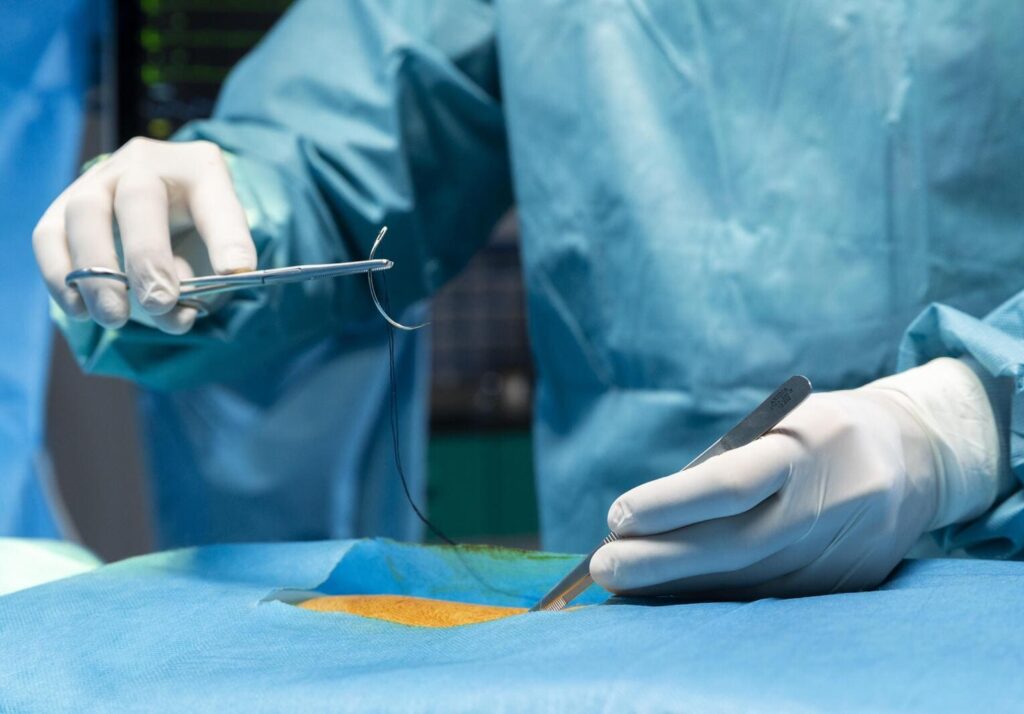Last updated on April 18th, 2025 at 05:20 pm

Fistulas can be excruciating and severely interrupt one’s life, but there is hope and natural cure available through the ancient Ayurvedic tradition. Knowing the underlying causes and remedies of fistulas will help Ayurvedic and health enthusiasts make well-informed, holistic decisions for their well-being. We’ll discuss the several kinds of fistulas in this post, along with efficient Ayurvedic therapies and do-at-home solutions to assist you manage this illness.
What is a Fistula?
It’s important to comprehend what a fistula is before we begin any treatment. An improper connection between two body parts, like a conduit or organ, is called a fistula. They frequently result from surgery, illness, or injury. If treatment is not received, these aberrant connections may result in discomfort and serious consequences.
Types of Fistulas
There are many kinds of fistulas, and each one needs to be treated differently. You can choose the most effective treatment plan by being aware of these categories.
1. Fistulas anal
One of the most prevalent kinds is an anal fistula. Between the bowel’s end and the skin close to the anus, they form. Pain, edema, and pus discharge are among the symptoms. Infection and prolonged discomfort might result from treatment neglect.
2. Female Rectal Fistulas
The rectum and the vagina can get infected with recto-vaginal fistulas. This type is more common in women and may be the consequence of surgical procedures or difficult deliveries. Pain, drainage, and recurring UTIs are among the symptoms.
3. Fistulas in the Intestines
Diverse sections of the intestines or the intestines to other organs are joined by intestinal fistulas. They may cause serious nutritional deficits and infections by complicating digestion processes.
4. Urinary fistulas
urine fistulas connect various organs to the urine tract. These can raise the risk of bladder infections and result in constant urine leaks.
Modern Fistula Treatment Options
Many treatments are available in contemporary medicine, but before selecting a course of action, it is important to weigh the benefits and drawbacks of each.
1. Surgery
Procedures for surgery include seton implantation and fistulotomy. These operations, although effective, carry some hazards, such as the possibility of infection and extended recovery periods.

2. Antibiotics
Though they don’t treat the underlying cause, antibiotics aid in the management of infections. Antibiotic resistance can result from prolonged use, which reduces the efficacy of subsequent treatments.
How to Drain a Surface
Pus removal and irritation reduction frequently require drainage. That takes several sessions, though, and offers only short-term relief.
Also Read: Fistula Treatment in Hindi
Best Ayurvedic Medicine for Fistula
With none of the negative effects of contemporary medicine, Ayurveda provides a variety of natural remedies.
1. Therapy with Kshar Sutra
Treatment for fistulas with a medicated thread is known as Kshar Sutra, an Ayurvedic method. With less difficulties than traditional surgery, this approach is highly successful and minimally invasive.
2. (Terminalia Chebula) Haritaki
Renowned for its medicinal qualities, haritaki is a potent herb. It contributes to tissue repair, immunity building, and inflammation reduction. Haritaki powder taken internally and diluted with warm water might hasten the recovery process.
3. Curcuma longa, the spice
Turmeric, which has antibacterial and anti-inflammatory qualities, can help treat the symptoms of fistulas. Turmeric paste applied topically or as part of your diet can help alleviate symptoms.

Fistula Treatment at Home
Several at-home treatments can enhance your treatment regimen in addition to Ayurvedic therapy.
1. Sitz Spa
Soaking the afflicted area in warm water is the process of a sitz bath. This easy cure can help heal wounds and lessen discomfort and swelling. The effectiveness can be increased by adding neem leaves or Epsom salts.
2. Nutritional Adjustments
A well-balanced, high-fibre diet helps ease the symptoms of a fistula by preventing constipation and lessening the strain during bowel movements. Make sure your daily intake consists of entire grains, fruits, veggies, and lots of water.
3. Medicinal Teas
Teas made from herbs, such as peppermint and chamomile, have calming qualities that can help lessen pain and swelling. Regularly consuming these teas can help promote general healing.
Read: What are Generic Medicines?
Conclusion
Your quality of life may be considerably impacted by fistulas, but you can control and even conquer this problem if you have the correct information and treatment plan. Natural and comprehensive solutions that cure the underlying cause as well as the symptoms are provided by Ayurveda. Fistulas can be efficiently treated and your health and vigor restored by combining Ayurvedic therapies, DIY remedies, and lifestyle modifications.
Difference Between Generic And Branded Medicine
When choosing pharmacological treatments, recognizing the difference between generic and branded solutions is vital.
1. Effectiveness
The active components in branded and generic medications are the same. On the other hand, branded drugs go through extensive testing and typically produce consistent results.
2. Price
Because generic medications are typically less expensive than their branded equivalents, a wider range of people can obtain them.
3. Accessible
In some areas, branded medications could be easier to find, while generic alternatives might take more work to find.
FAQs on Fistula Treatment
1. Which symptoms are typical for a fistula?
The typical signs and symptoms include discomfort, edema, pus leakage, and recurring infections. Additionally, you can encounter fecal or urine leaks, depending on the type.
2. Does Ayurveda offer a full cure for fistulas?
Long-term alleviation and addressing the underlying causes are the goals of ayurvedic therapy. Despite their great effectiveness, the success rate could differ depending on certain circumstances.
3. How long does an Ayurvedic treatment take to start showing results?
The length of time varies based on how severe the illness is and how well the treatment plan is followed. While some people experience benefits in a matter of weeks, others could require more time.
4. Do herbal remedies for fistulas have any negative effects?
Comparing Ayurvedic medications to conventional therapies, they are often less harmful and have less side effects. For individualized guidance, it is imperative to speak with an Ayurvedic physician, however.
5. Can altering one’s lifestyle aid in the management of fistulas?
Yes, maintaining a healthy lifestyle with a balanced diet, frequent exercise, and stress reduction can greatly help with fistula care and recurrence prevention.
You can take charge of your health and well-being by remaining knowledgeable and proactive. Discover the best course of action for your needs by investigating home remedies and Ayurvedic therapies. Never forget that mending starts with one step—take yours now.

